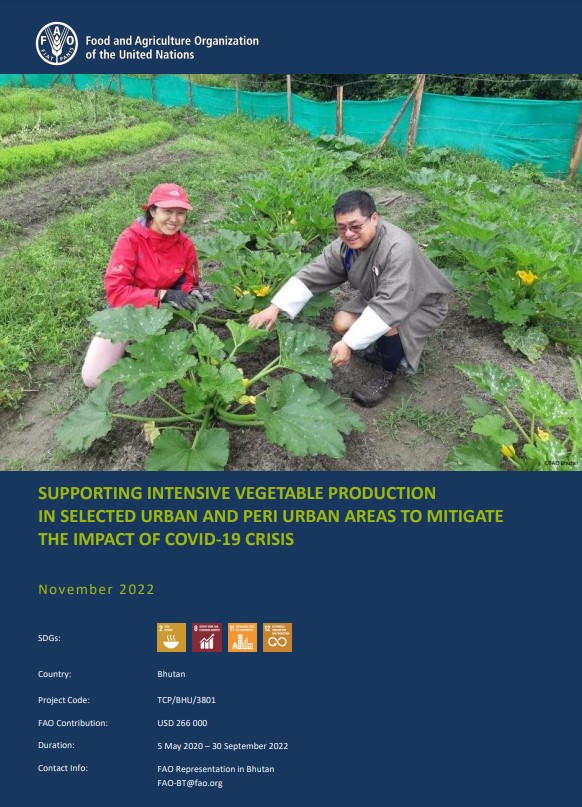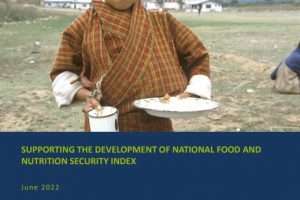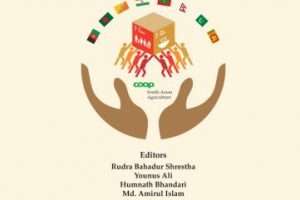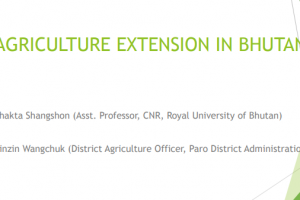The COVID 19 pandemic had important consequences on international trade and food supply chains, which were all the more damaging for countries with import driven economies, such as Bhutan Reliable food provision and economic prospects in Bhutan were hindered by the sudden isolated situation in which the country found itself In particular, the quality and quantity of fresh vegetables, fruits and meat imports were in peril, given the long queues of trucks at the border with India In addition, Bhutan’s tourism and hospitality sector, an important part of its economy, was hit hard by the COVID 19 pandemic, which caused rising unemployment rates, especially in cities, where 77 percent of residents work in the services sector To face the agricultural and economic challenges related to the pandemic, the Government requested the support of FAO to enhance intensive urban and peri urban farming practices and provide greater economic and food security for the population The project was set up to develop urban and peri urban agriculture in 65 converted acres of land, developing the agriculture capacity of young people and laid off employees from the tourism and hospitality sector to produce and supply vegetables to urban markets and ensure alternative streams of income.
Supporting Intensive Vegetable Production in Selected Urban and Peri Urban Areas to Mitigate the Impact of COVID-19 Crisis





Add Comment